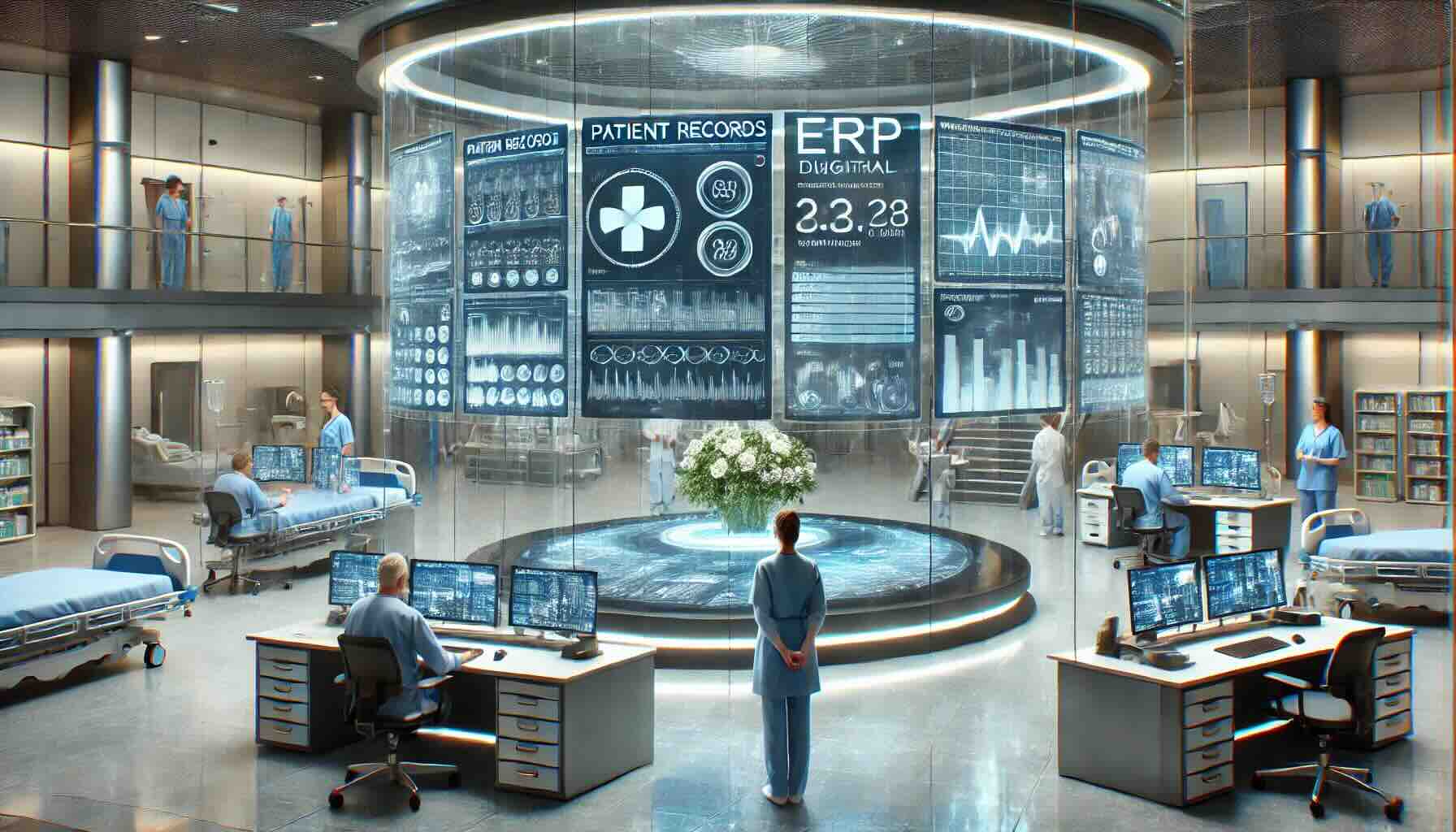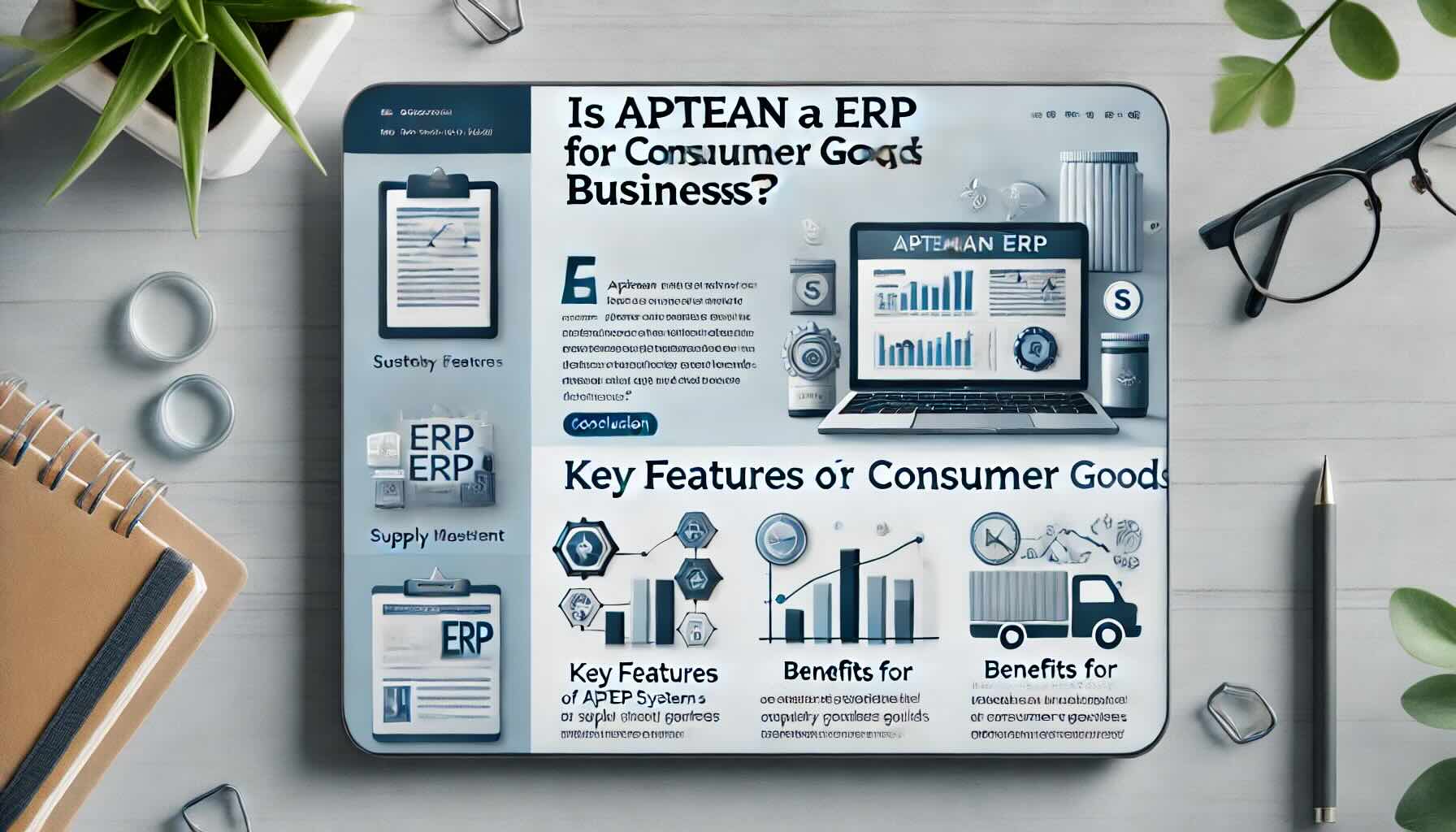Which ERP Software is Best for Healthcare?

Selecting the right Enterprise Resource Planning (ERP) software is crucial for healthcare organizations looking to enhance efficiency, compliance, and patient care. An ERP system centralizes and integrates operations like patient management, billing, HR, supply chain, and financial reporting, ensuring seamless communication across departments.
But which ERP software is best for healthcare? Below, we break down five top ERP solutions, analyzing their features, benefits, drawbacks, and ideal use cases.
Key Features of Healthcare ERP Systems
An effective ERP for healthcare should include:
- Patient Data Management – Centralized electronic health records (EHRs) for easy access
- Financial & Revenue Cycle Management – Streamlined billing, invoicing, and compliance
- Supply Chain & Inventory Control – Prevents shortages and reduces waste
- Human Resources & Payroll – Simplifies staff scheduling, hiring, and performance tracking
- Regulatory Compliance – Ensures adherence to HIPAA and other healthcare regulations
Top ERP Solutions for Healthcare
SAP S/4HANA for Healthcare
Overview: SAP S/4HANA is a powerful cloud-based and on-premise ERP designed for large healthcare organizations and hospitals. It integrates financials, supply chain, HR, and patient data management into one seamless platform.
Key Features:
- Predictive analytics and AI for patient care optimization
- Interoperability with EHR systems
- Strong compliance and security features
- Automated financials and billing to reduce revenue loss
Pros:
- Highly scalable, ideal for large hospitals and health networks
- Advanced analytics for decision-making and forecasting
- Excellent financial management capabilities
Cons:
- Expensive compared to competitors
- Complex setup requiring significant IT resources
Best for: Large hospitals, multi-location healthcare organizations, research institutions
To find out more about SAP S/4HANA you can visit this link.
Oracle NetSuite
Overview: A cloud-based ERP, Oracle NetSuite is widely used by midsize healthcare organizations looking for financial automation, inventory management, and compliance tools.
Key Features:
- Cloud-native solution for easy scalability
- Real-time dashboards and analytics for tracking financials and operations
- Inventory and procurement automation for better supply chain efficiency
- Built-in HIPAA compliance and data security
Pros:
- User-friendly and cloud-based, requiring no complex IT infrastructure
- Strong financial automation for billing and revenue cycle management
- Excellent inventory management capabilities
Cons:
- Limited clinical integrations compared to SAP or Microsoft Dynamics
- Customization may be needed for healthcare-specific needs
Best for: Mid-sized healthcare organizations, private clinics, outpatient centers
To find out more about NetSuite you can visit this link.
Microsoft Dynamics 365 for Healthcare
Overview: Microsoft Dynamics 365 provides a comprehensive, AI-driven ERP and CRM that integrates seamlessly with Microsoft Cloud for Healthcare, ensuring smooth patient data handling, scheduling, and financial management.
Key Features:
- AI-driven patient engagement and automated reminders
- Seamless integration with Microsoft tools
- Strong finance and HR automation
- EHR interoperability for smooth data sharing
Pros:
- Great for patient engagement with AI-driven tools
- Excellent integration with existing Microsoft products
- Scalable and modular for different healthcare provider needs
Cons:
- High learning curve for new users
- Customization required for healthcare-specific needs
Best for: Hospitals, outpatient care, specialty clinics using Microsoft products
To find out more about Microsoft Dynamics you can visit this link.
Sage Intacct
Overview: Sage Intacct is a cloud-based ERP focused on financials, making it ideal for healthcare organizations needing strong accounting and financial management rather than clinical integrations.
Key Features:
- Real-time financial tracking and reporting
- Strong revenue cycle management for billing efficiency
- Automated compliance and audit tracking
- Multi-entity support for healthcare chains
Pros:
- Industry-leading financial ERP for revenue management and cost tracking
- User-friendly cloud-based interface
- HIPAA-compliant security features
Cons:
- Limited clinical tools and not an all-in-one hospital management ERP
- Best suited for financial teams rather than direct patient data management
Best for: Healthcare organizations prioritizing financial control such as hospitals, senior care, and rehab centers
To find out more about Sage Intacct you can visit this link.
Infor CloudSuite Healthcare
Overview: Infor CloudSuite Healthcare is a healthcare-specific ERP designed for hospital operations, finance, and supply chain management.
Key Features:
- AI-powered inventory management for medical supplies
- Automated workforce management for scheduling and HR
- Revenue cycle management tools to improve billing processes
- Patient experience analytics
Pros:
- Tailored for healthcare, built specifically for hospitals and clinics
- Great supply chain optimization reducing medical inventory waste
- User-friendly and cloud-based
Cons:
- Less flexible for non-hospital settings
- Implementation takes time
Best for: Hospitals, large outpatient networks, health systems
To find out more about Infor you can visit this link.
Conclusion
Choosing the right ERP for healthcare depends on your organization’s specific needs. Instead of navigating the complexities alone, leverage Compare ERP to find the best system tailored to your business.
How Compare ERP Works:
- Set Your Priorities – Rank what matters most: cost, industry fit, scalability, ease of use, and more.
- Discover the Perfect ERP System – Our AI-powered tool analyzes real data to match you with the best ERP solutions.
- Save Time & Energy – Skip the tedious research and receive a customized shortlist in minutes.
- Get Confident Recommendations – Compare ERP provides clear, concise recommendations, helping you make an informed decision.
Whether you’re moving off an outdated system, upgrading your technology, or starting fresh, Compare ERP simplifies the process, ensuring you find the right fit with ease.
Visit Compare ERP today to take the first step toward a smarter, more efficient ERP solution for your healthcare organization.









